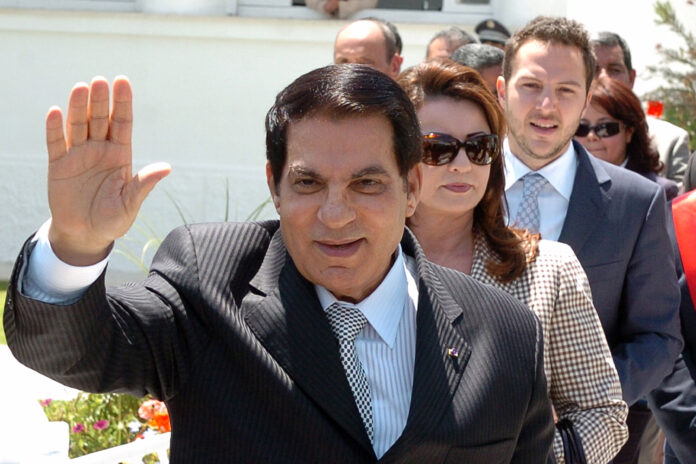
Mongi Khadraoui
Why is Tunisia in crisis? This is one of the questions that politicians and intellectuals in Tunisia are asked, whether in the government or in the opposition. Is it a system crisis or an anthropological cultural crisis? In other words, is it the crisis of the structure and nature of governance, or the crisis of a people who did not gain historical experience in accumulating value from the conflict?
Despite the success in overthrowing the political authority on January 14, 2011 through a popular uprising that has roots during which generations made sacrifices in prisons and souls… However, the fragmentary, eradicative approach to history considers that the uprising that led to the overthrow of the Ben Ali regime had begun on December 17, and this approach considers that January 14 plotted on December 17th.
The Fractional Approach
This perception remains a partial one that views history in a static way and does not believe in cumulation. Generations of the student, union, and popular movement have accumulated confrontations with the undemocratic political system during the era of Bourguiba and the era of Ben Ali, and some movements were able to seize gains, and in certain periods, the confrontation experienced progress and decline.
The overthrow of the Ben Ali regime is the result of an equation whose elements are intertwined, manifold and complex, including the behavior of the regime itself, as it has become unable to absorb the existence of a crisis, as it is a blind regime that sees only what it likes.
The economic system was linked to the capitalist system without being capitalist, as production in Tunisia was in part primitive and the national capital was not completely formed, as it remained linked to international financial and investment circles, and the national bourgeoisie, mainly artisans and makers of the Tunisian “bazaar”, was overthrown in favor of brokers and middlemen who provided services to multinational companies in return for commission.
The Nature of the Ruling Coalition
The political system in Tunisia is by its nature dominated by an alliance between the mediating bourgeoisie and the local bourgeoisie linked to the capitalist circles, and it is a non-national alliance.
Has the structure of the system changed, and has the mode of production changed?
Definitely not, the same pattern of rentier production and traditional agriculture with a state based on levies obtained from the petty bourgeoisie, i.e. from wage earners and employees, the same state in its formal sense (le système) remained dominant during the era of Bourguiba, the era of Ben Ali, and the era of the revolution, and it continues to this day.
The question is, was the revolution able to eradicate this regime and carry out its historical mission of radical revolutionary change? Was Kais Saied able, through the July 25th movement, in which he announced the freezing of parliament and the dissolution of the government, to uproot the regime in its deep meanings?
The revolution and the Kais Saied movement were not able to carry out the radical change that is historically required for revolutionary achievement. Rather, we are in the process of present-day coexistence between Kais Saied, with what he bears of connotations, and the regime in its non-national formations.
This political system is countered by a popular movement, the rhythm of which is unstable but awaited. The objective conditions before January 14th led to the popular uprising. The economy, social, class, and regional injustice led to the marginalized and the most impoverished parties and classes that have nothing to lose but their restrictions to revolt and announce the demand for radical change.
The Regime Saves itself by Ending the Role of Ben Ali
In this case, and in an attempt to confront an advanced case of the popular uprising, the regime sought to work to remedy the movement by keeping pace with it, such as pulling the rug out from under Ben Ali’s feet and ending his role under the management of Tunisian parties in the regime, then striking the first and second moves of the fist, and intensifying the revolutionary process in institutional work. Through it, Iyadh Ben Achour and a number of experts were assigned to manage the conflict and turn it into an institutional case that would be decided by the elections.
If a country is in a severe economic crisis, social tension is at its maximum, and the horizon is blocked, as well as a lack of understanding and an accurate explanation of what is going on, it is obvious that people resort to metaphysical interpretations, which is what made a large part of them elect the Islamic Ennahda (Renaissance) Movement. This means that the revolutionary movement, which must inevitably be a movement of progress in history, chooses a right-wing reactionary party that bases its approach on religious foundations.
The Historical Experience of the People
The popular movement in Tunisia, whose foundations date back to the confrontation of French colonialism and before that, the armed confrontation against the puppet authority of the “Bey”, which was led by Ali bin Ghdhaham in a progressive revolutionary movement ended with his arrest and poisoning assassination in “ La Goulette” in the capital, Tunis.
Despite the important historical stages of the confrontations of the Tunisian people with the political authority, whether in the colonial era or in what is known as the state of independence or after the fourteenth of January, the process of accumulation in its Hegelian sense did not take place.
The popular confrontations did not lead to a historical accumulation to create the revolutionary organization, the revolutionary leadership and the revolutionary program. Rather, they created critical economic, political and intellectual competencies without having a transformative effect on society.
The Tunisian people lack in this sense what is known as the historical experience of the peoples. For example, the peoples of Latin America have gained experience, which made them immune to the possibility of the return of dictatorship and were able to move quickly towards democracy and modernity, and the same is true for many African countries such as Rwanda, where the popular forces became major supporter of the new economic trend that has catapulted the country to advanced positions.
The people’s historical experience is an essential and important element in building a democratic transition. This is what is lacking in Tunisian society, which is still reeling under the weight of a political and economic system that can be described as criminal because of its ties to colonial external powers more than its ties to the national interest.










